2018: Yeah, well THAT was a year.
I am eligible for BEST FAN WRITER, for my work at BN Sci Fi, Tor.com, Skiffy and Fanty and Nerds of a Feather. I write and publish in a number of places, I do wonder sometimes that no one realizes my prolific output because it is all over the place. And of course, quantity does NOT have a quality all of its own. And there are people who do more, and are more. Me, I just plod along here.
Anyway, besides blog posts, reviews and the like, I also do podcast like things. I am of course a central member of the Skiffy and Fanty Show, a central member of SFF Audio and also participate in Juliette Wade’s Dive Into Worldbuilding. All three of those are eligible in the BEST FANCAST category.
I would be grateful if you chose to nominate me in either the Best Fancast or Best Fan Writer categories.
So now that I’ve discussed my 2018 and my award eligibility, let’s talk about books. I read some this year, not quite as many as last year, sadly, but that’s how things go.
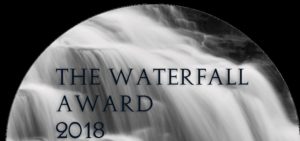
Even though there were some high profile disappointments (of whom I will not speak further), there was plenty to love this year. All of these books with the exception of two categories were published in 2018.
Favorite SF of the year
Science Fiction has been my core since the beginning of my reading career. Sure, fantastic lands are a thing and I can wander those with a group of characters endlessly, but it’s the future, on earth or in space, and more, that really gets my juices flowing.
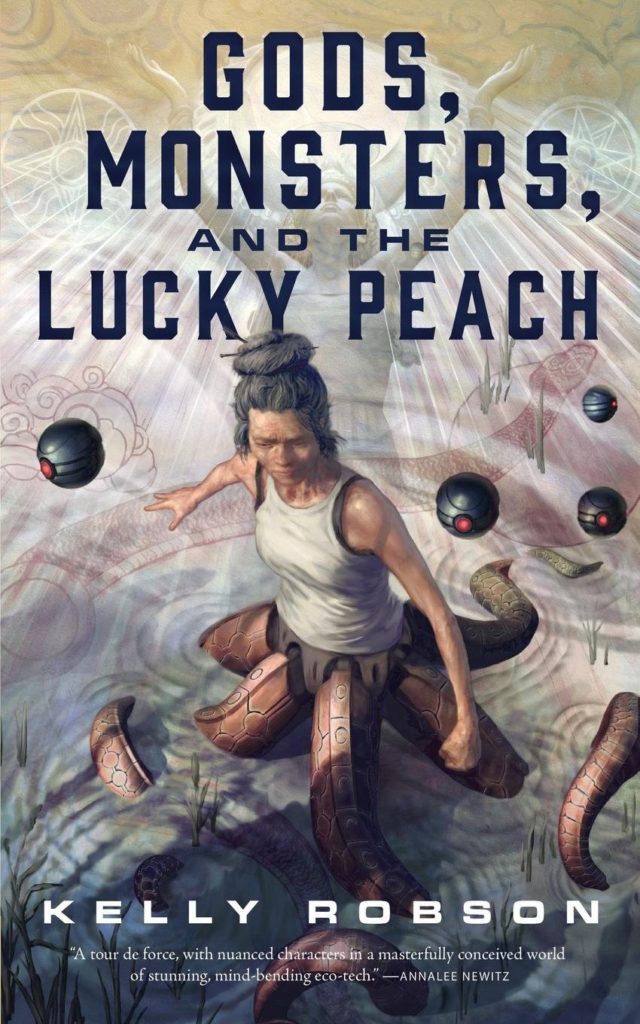
I would not have thought that you could plausibly combine a Time Travel plot with ideas on ecology, future devastation, lush writing, and strong characters in one package, but I should not have been surprised that Kelly Robson would be the one who manages that feat. I was reading Gods, Monsters and the Lucky Peach at the same time I discovered the SF time-travel show Travelers, and so the idea of a future world, living mostly underground and sending people back in time, seemed to me to be an idea whose time has come. That alone is strong, but the idea of going back to ancient Mesopotamia for ecological restoration reasons, and showing just how driven her characters, present and past could be, lifted this further in my esteem and estimation.
Favorite Fantasy of the year
Okay, sometimes you want to put away the time travel machines for the road to Amber, or walking to Mordor, or ducking into an alley and finding a magical alley of shops. In this year of 2018, sometimes you want to go to a magical world different than our own. Luckily, a lot of authors have got us covered in that regard.
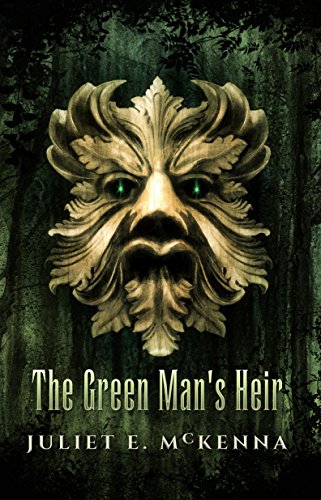
All of the work by Juliet McKenna that I’ve read previously has been very good, and very crunchy secondary world fantasy. Her Lescari Revolution novels, in particular, are an excellent place to read that strain of her work. The Green Man’s Heir, however, was something new and different for me from this talented author—a contemporary fantasy about the son of a dryad who finds himself wrapped up in a mystery and fantastic conflict centered on the woods near which he lives. All of the virtues that McKenna brings to her secondary world—character, description, worldbuilding are in evidence here. The novel gave me the urge and desire to see the part of England in which it takes place (even if some of the locales are fictional), so well and so deep do we see them from the perspective of her protagonist, Daniel Mackmain. In the traditions of authors like De Lint and Holdstock, McKenna enters the fray and succeeds.
Favorite Horror/Dark Fantasy of the year:

With some notable exceptions and authors, I do not find myself reading a lot of dark fantasy and horror. It is not my usual metier, not my usual type of reading, but this year I found myself delving into some. Was it mood? The stress of 2018? A change in my tastes? Or perhaps it was because authors I liked delved into this territory and I followed them into it.
One such author is John Hornor Jacobs. He’s no stranger to dark fantasy and horror; the first work by him I read was in, fact, the dark Lovecraftian fantasy Southern Gods. His new novella, The Sea Dreams It Is the Sky, appears to be set in the same world as Southern Gods based on a reference that readers who have not read the previous book will not see. That connection did help me see, earlier than other readers might have, just what was going on in this monstrously good novella of a fictional South American Country, and two expatriates who find that they can leave their homeland…but their homeland will not leave them, and that a painful, dangerous return with unspeakable consequences is, in fact, inevitable.
Favorite Near-Future book of the year:
Getting the horizon of the near-future right is tough. Technology soon makes your novel seem quaint, political events make your speculations quickly an alternative history, not a near future history, and just trying to keep up with the modern day means that a lot of authors blanch at even trying.
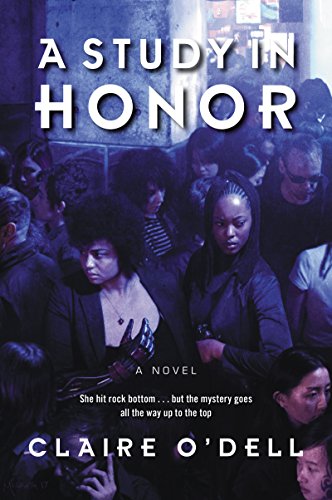
Because our current future gets darker day by day, and the author understands that, and yet provides a compelling near future with a pair of central protagonists who are amazing, together and separately, I am going to go with Claire O’Dell’s A Study in Honor. A near future Washington D.C, where the US has descended into civil war, A Study in Honor presents us with Janet Watson, a queer black female veteran, who soon finds herself in the orbit of a talented information gathering and processing spy by the name of Sara Holmes. The novel works on the near future level, the relationship level, and thirdly and definitely not lastly, in the tradition of Sherlock Holmes novels.
Favorite Epic Fantasy of the year
I like big phat fantasy and I do not lie. Epic fantasy is an investment of time, immersing me into a big world, with big stakes, with a large set of landscapes. Epic fantasy is the genre today where you go big or you go home, and thanks to A Game of Thrones, it has supplanted urban fantasy as the “Face of fantasy” within and without the genre. If you ask someone about fantasy novels, they are most likely to think epic.
So what’s good in epic fantasy this year? Lots, once again. One might even say that I was spoiled for choice even as there were other epic fantasies that I didn’t get to read or get to finish reading by the time of this writing.
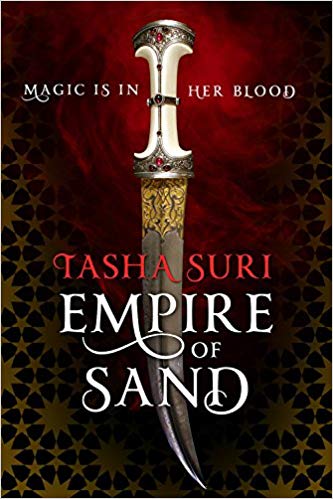
By a hair, I am going with a debut author here: Tasha Suri. Her epic fantasy Empire of Sand is all of the “beyond the great wall of Europe” I’ve clamored for years in fantasy to read, and now am finally getting. The story of a young woman in a palace whose magical gifts conflict with the needs of the Empire and her father, but not the oppressed people of her mother, is poignant, inventive, and immersive. Worldbuilding, strong central character, intricate plotting, difficult choices, and much more make the novel stand out from it’s competition.
Favorite Space Opera of the year
Space Opera is to SF as Epic Fantasy (above) is to fantasy. Bigger, wider scale, widescreen, space the final frontier. The fate of suns and spiral arms and even galaxies. Sometimes, nothing else will do than to take that trip to Proxima Centauri and leave Earth behind.

For its Big Dumb Objects, interesting characters (including the AI of a ship), its ideas, scale and more, my favorite Space Opera of the year is Gareth Powell’s Embers of War. It noses just ahead of the pack of other Space Operas that I read this year on the strength of its writing. Other Space Operas I’ve read this year have had the characters, the scale, the sensawunda, and the big dumb objects, but it is Embers of War that marries it with the best writing, the universe that I want to read more more more about.
Favorite Book heard in Audio of the year
I listened to a record-for-me number of audiobooks. I fell away a bit from podcasts and focused more on audiobooks. Audiobooks for SFF Audio, for Reading Rangers, and for my own reading and aural pleasure. I had a couple of driving trips this year, which allowed me to rack up the time listening to books, too.
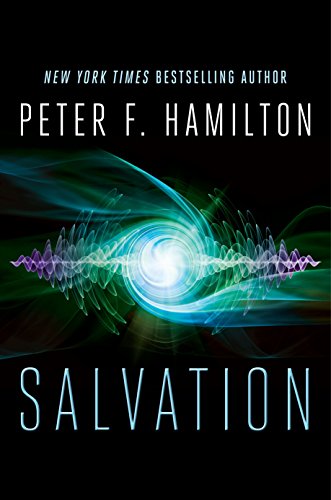
Peter F. Hamilton writes big, thick SF novels, no lie. Going deep into this series can be an exercise in patience and time, and so the start of a new series by him is exciting, because of all of his setup and the construction of worlds. Salvation on the barest level looks like his Commonwealth universe, since it involves Gates, but rather than gates that trains run through, these gates are much more intimately sized. Hamilton mines the territory of Dan Simmons’ Hyperion to tell a tale of alien contacts and the future of humanity, going with a Canterbury Tales like structure to tell the stories of various characters gathered together to investigate an alien spacecraft. Oh, and a far future plot thread whose connection to present events is…unclear.
Favorite Sequel of the year
First novels, or first novels in a series are easy. The second book is when things get real. Can you live up to the first book? Can you make it more than a placeholder to a presumed third? Can you not repeat yourself and make yourself a clone of that first?
And if you are at a high number of a book in a series, how do you keep it fresh and new? A couple of books vied for this spot, but there can be only one:
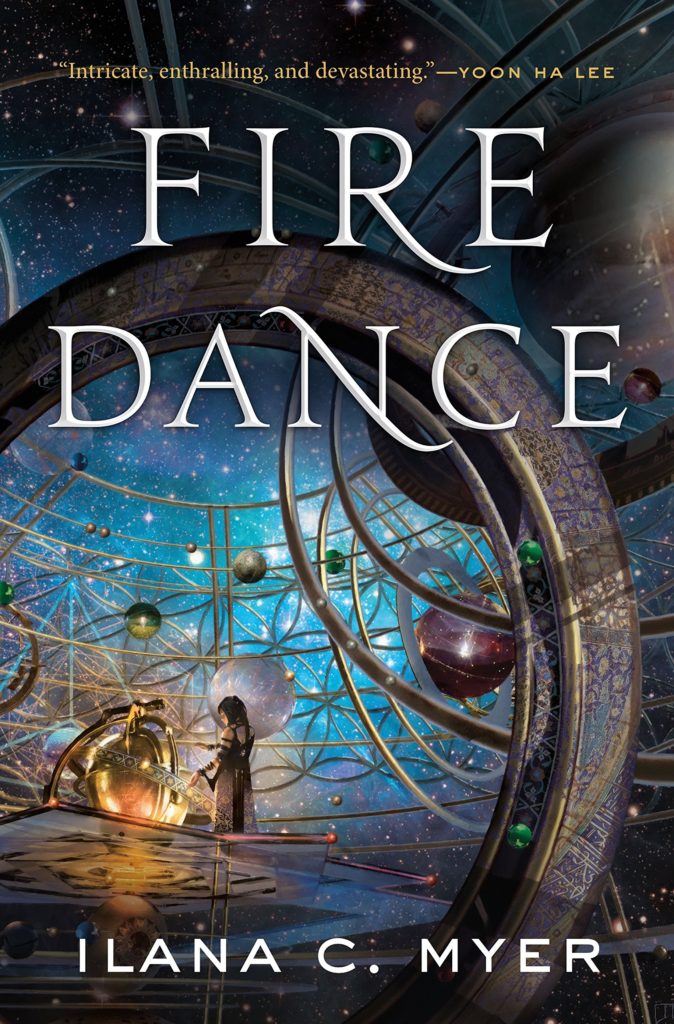
Ilana Myer’s Fire Dance solves this problem by showing the world as shaken up after the events of her first novel, Last Song Before Night. In keeping with her lush, evocative and poetic language, Myer provides a new venue and perspective on her world, and further depth and character definition for Lin, the protagonist of the first novel. The magic has returned, but that’s not the solving of all problems, it’s a change that has consequences and issues for Lin herself, and other realms besides. One memorable sequence has Lin visit the locale depicted on the cover, and it is a case where the words and description DO match and live up to the gorgeous picture. Myer’s two books, now, have made me feel transported to somewhere else.
Favorite End-of-the-Series of the year
As opposed to a straight-up sequel, this category is for books which stick the landing on their particular series. In this series-heavy world that we now exist in, getting the end of a trilogy, or longer series, is very important, and I look carefully to see if the threads from the beginning of the series come through in the end. Several series ended this year, by authors I loved. It was hard to make a single choice here.
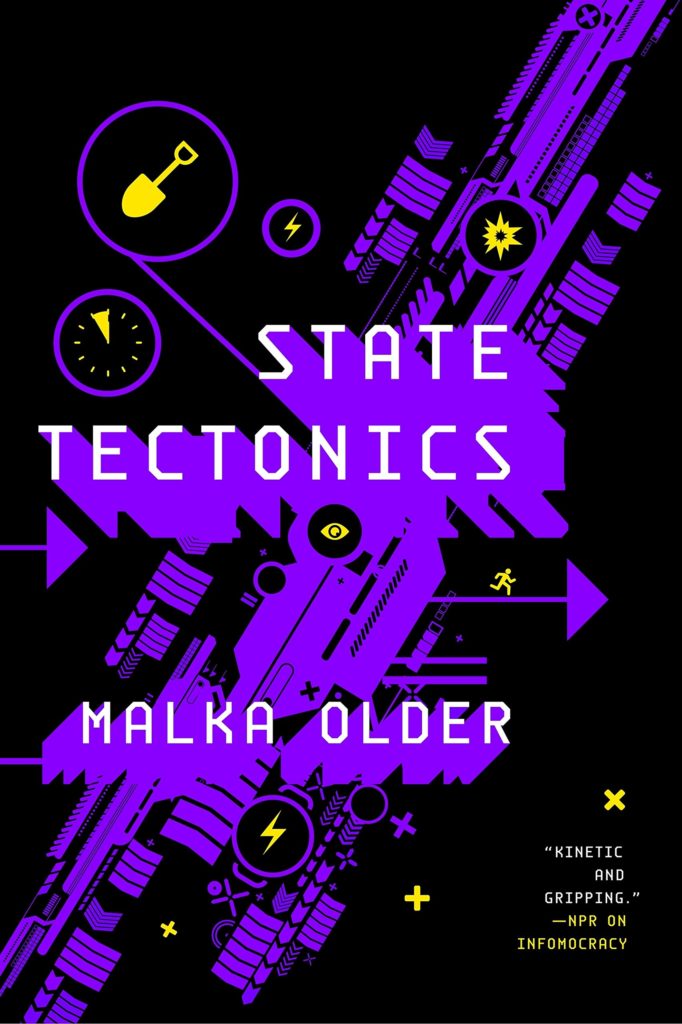
The breadth of her invention, and her deep thoughts about politics, society, the future of technology, our relationship with it, and each other, and providing a near future that is no utopia, but has problems and advantages of its own, point me at the work of Malka Older. Her State Tectonics sticks the landing here, bringing the Centenal Cycle to a successful close. The only constant is change, and Older shows us how her future world, evolved from ours, must itself in the end find a way and a path forward to change, or it, too, will not survive. Memorable characters, worldwide locations, intricate plotting and worldbuilding, and much more make this novel sing.
Favorite Debut of the year
I read a fair amount of debuts. Publishers send me ARCs. Sometimes writers reach out to me. I get curious to get in on the ground floor with an author. I’m very willing to give an author a try, especially if a cover, an excerpt, or other ancillary matter hook me into the author and how they write and think in an appealing way.

Or in a new way. Alexandra Rowland’s A Conspiracy of Truths is a fantasy that starts with our narrator in a prison, telling us how he got dumped there, and why. This story leaps and bounds from that to a story of revolution, social upheaval, politics, and intrigue. That alone would be enough for a lot of authors and a lot of books. What brings Rowland to the top of the debut stack is her ambition in the meta-textual aspects of this novel. The book plays tricks with voice, narration,and the reliability of the narrator and much more. Who tells a story, how they tell it and the use of stories and vignettes within the narrative make the novel an intricate jewel of a debut.
Favorite Book Not out until 2019
I am lucky that sometimes I get a hold of a book months in advance of the normal run. This can mean me reading a book in October or November that’s not out until February or March of the subsequent year.
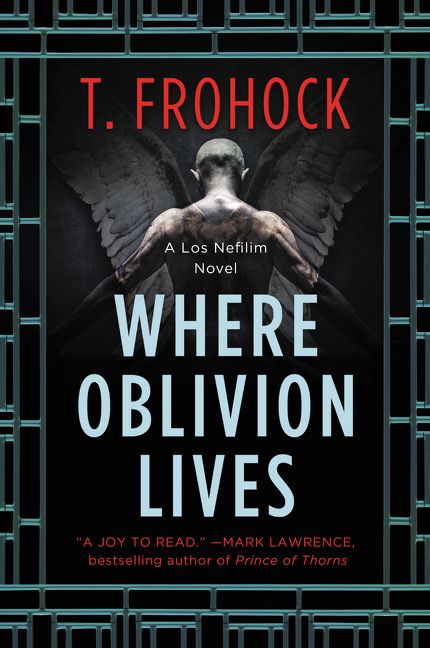
T. Frohock’s Where Oblivion Lives is a full-length followup to her trilogy of novellas of the Los Nefilim, an In Nomine like world of angels, demons, and the supernatural creatures between that live amongst unsuspecting humans, a subtle and undeniable influence on the world around them. Set in the 1930s in Spain just before its devastating civil war, it features a strong loving relationship between two men of this community, a sharp conflict that presages and seems prelude to the conflicts in Spain and soon, the Second World War, and some very vivid, descriptive writing and immersion into the worlds, both historical and supernatural. Frohock lets the reader sink into those words, and wonderfully.
Best Serial
I am not sure how to classify serial books. Are they a form unto themselves? Should they be counted amongst the major categories above? What about serials that cross genres? I read a number of these this year, so it can and does get a category of it’s own on that basis alone.
Imagine a world of floating islands, where diplomats meet in neutral territory, and duel and debate their way on issues that influence all of the islands, islands drawing ever closer to the potential of all out war. Throw into that interesting magic, an arc of characters and antagonists to set upon each other, and put together a crack team of authors to write it.

You would then have my favorite 2018 serial, Born to the Blade. Born to the Blade features all of this, with a stellar lineup of writers—Mike Underwood, Marie Brennan, Cassandra Khaw and Malka Older. If you ever watched a marathon of Babylon 5 after The Princess Bride, with a dash of Avatar the Last Airbender and other anime, and wanted all of that in a single work, Born to the Blade is the serial for you!
Favorite Non Fiction book of the year:
I do try to read some non-fiction every year. I am a curious sort, and nonfiction can spark ideas about fiction writings of my own. and just expand my horizons in intriguing and unexpected ways.
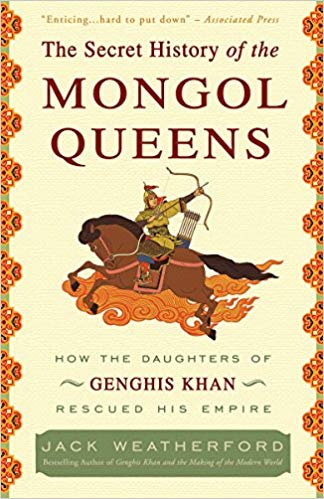
I tried to consume some books about the Mongols this year in an effort to learn about the other big land empire in history beside my beloved Romans. I read and listened to a few books about the Mongols. The one that opened up my eyes the most about the Mongols and their legacy was not a book on Genghis Khan himself, but rather Jack Weatherford’s The Secret History of the Mongol Queens. The book gave me illumination and perspective on facets and portions of the history of the Mongols I had not an inkling about, and I found the accounts and information fascinating and enthralling to read. I wouldn’t read this before Genghis Khan and the Making of the Modern World (which I re-read this year first). Together the two books give a good diving off point into further books and study of the Mongols.
Favorite book not published in 2018:
I don’t just read books published in this year, or next year. I could cheat and give a book published in 2018 (yes, as of the time of the writing of this, I have read an ARC of a book that is not yet available, but I consider that cheating).
I read a lot of 2018 and (even a couple of 2019) books this year, I was really in the flow of “the moment’” with a lot of my genre fiction. Still, I managed to squeeze in a few books I missed from previous years and I am glad I did. N.S. Dolkart’s Silent Hall and Melissa Caruso’s The Tethered Mage are debut novels that start series that I want to find the time to continue. The former is a fantasy that has a real bronzepunk feel, with strange magic, capricious gods, and sharp conflicts involving the few survivors of the decimation of their island home. Dolkart’s nuanced, intriguing look at religion and Gods reminds me of the work of Tim Akers, in all the best ways. Caruso’s novel by contrast is set in a Venice-like city state, with magic, intrigue, adventure, questions of freedom and responsibility, and made me think of some of the work of Guy Gavriel Kay, although perhaps a step further along the fantastic than Kay’s much more historical fantasy.
Favorite Re-read of the year:
I do not do anywhere near as much re-reading as I used to. Way too much new stuff out there. But I do manage to expand my reading diet a little, and sometimes a book that I have loved before gets covered on a podcast.
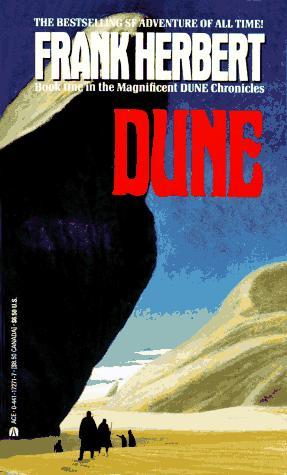
There is only one real choice for this category, since it’s been a couple of years since I have dived deep into one of the core texts that define me as a SF reader. When SFF Audio suggested that we tackle Dune this year, I found immediately the chance to re-read the book in a form that I had never encountered before—in Audio. With all of my reading of Dune over the years, it had always been in print and ebook. I really enjoyed the chance to listen to the book for a change, and get new perspectives and idea on the book through the podcasts at SFF Audio that we did. It still abides in the core of my genre reading.
And now the moment you have been waiting for: My Favorite Book of the Year.
And the winner of The Waterfall Award for Paul Weimer’s Favorite Book of the Year is…
Lord, this was tough. Two books I kept thinking about as I thought about the best book of the year. So both win.
First up is the electrifying debut TRAIL OF LIGHTNING by Rebecca Roanhorse. In a post-apocalyptic New Mexico (or what once was), we get a story of Gods, monsters, and a barely controlled power in an vividly described landscape that still makes me want to get on a driving trip down there now now now. Action beats, central character growth and development, and an interesting world make this novel stand out.
Equally good was Catherynne Valente’s SPACE OPERA. This is a book fully and firmly fun, in the tradition and legacy of Hitchhiker’s Guide to the Galaxy, plus Eurovision. Can an interstellar song and production save or doom humanity? Space Opera tackles that question not only with deepness and richness, but a sense of playfulness, full color on surround-sound phantasmagoria of visuals, characters and plotting. The book is full of delights on every page and is the book out of this year that I wouldn’t mind re-reading by audio whilst on a road trip—even over a new hotness of an unread book, because it would make the miles roll by and entertain me.
Honorable Mentions:
As always there is too much to give recognition to in a single list of books. Books that didn’t not win any of these categories but came very close were many. The best of the best of the rest is itself a fraction of all the goodness this year.
Moonshine by Jasmine Gower was a fantastic Prohibition era-esque fantasy. Nnedi Okorafor’s Binti: The Night Masquerade was a big and brash conclusion to her Binti series, a volume larger than the previous too, full of story and character. Alex Acks’ Blood Binds the Pack followed up their Hunger Makes the Wolf, an alchemy of psionics, magic, and an alien planet. Matt F Wallace’s Taste of Wrath was an explosively fun and satisfying end to the Sin Du Jour series. Witchmark by C.L. Polk brought me the unexpected pleasure of a bicycle chase in an Edwardian like fantasy series. Laura Anne Gilman’s Red Waters Rising brought home the Devil’s West series in an epic and satisfactory fashion, as Isabel grows into the maturation of her role and power at last. R.F Kuang’s The Poppy War was dark and intense, and nearly as good as either the Jacobs or the McKenna, depending on how I ultimately classified it—it’s a difficult book to take in some regards. Ironclads by Adrian Tchaikovsky was a fantastic and poignant near-future SF tale with mecha, mysterious Finns and pointed political commentary that technically came out at the end of 2017 and nearly made it a three-way tie with Dolkart and Caruso. And so many other books.
We’ll see what 2019 brings!


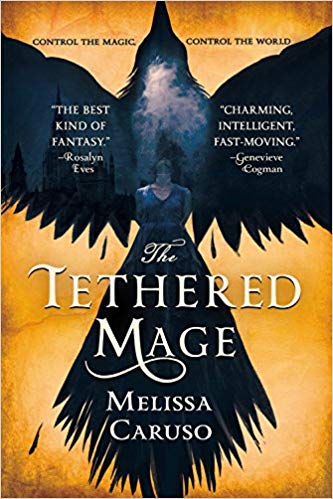









One Response